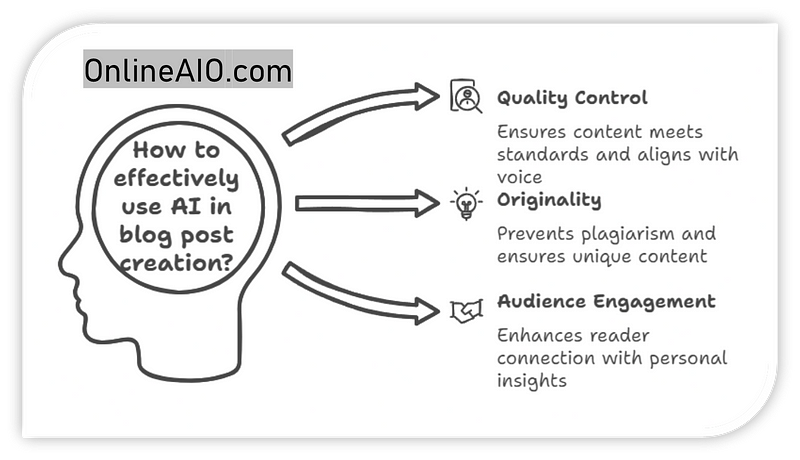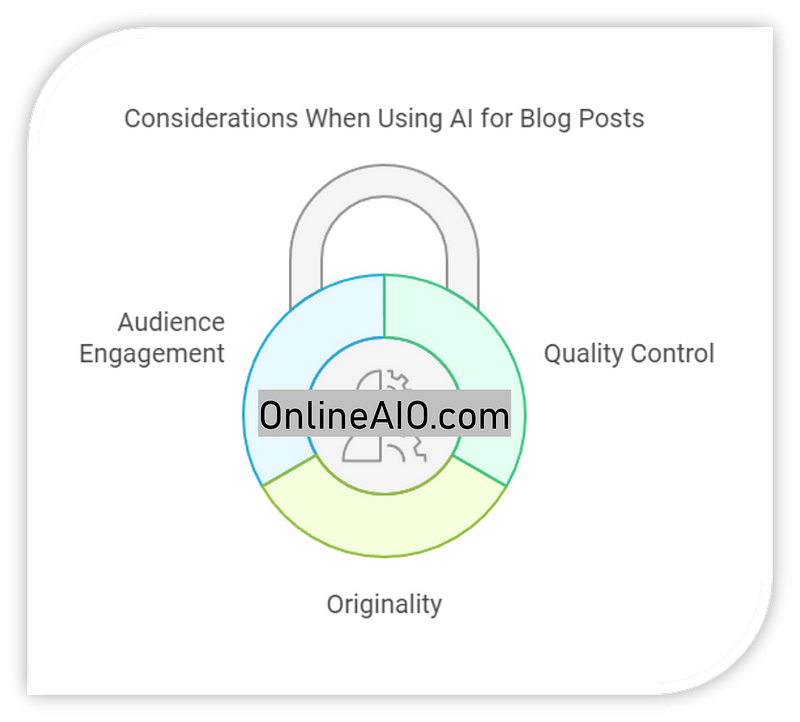Can I use AI to write a blog post?

Using AI to Write a Blog Post
In today’s digital landscape, artificial intelligence (AI) has emerged as a powerful tool for content creation, including blog posts.
This article explores the potential of AI in writing, the benefits it offers, and some considerations to keep in mind when using AI for your blogging needs.
The Role of AI in Content Creation
AI can assist in various stages of the writing process, from brainstorming ideas to generating complete articles.
Tools powered by AI can analyze trends, suggest topics, and even draft content based on specific guidelines.
This capability allows bloggers to save time and enhance their creativity.
Benefits of Using AI for Blog Posts
- Efficiency: AI can quickly generate content, allowing bloggers to produce more posts in less time.
- Idea Generation: AI tools can analyze popular topics and suggest ideas that resonate with your audience.
- SEO Optimization: Many AI writing tools come equipped with features that help optimize content for search engines, improving visibility.
- Consistency: AI can help maintain a consistent tone and style across multiple posts, which is essential for brand identity.
What are the best AI tools to write a blog post?
9 Best AI Tools for Writing Blog Posts in 2025
There are several AI tools available that can assist you in writing engaging blog posts.
Here’s a list of some of the most popular and effective options:
- Brandwell AI Writer
- Overview: A versatile content writer who can generate ideas, outlines, and full drafts based on your prompts.
- Key Features: Conversational abilities, content generation, and customization options.
- Website: https://brandwell.ai/
- Scalenut
- Overview: An AI content marketing tool that offers a variety of content generation features.
- Key Features: Blog post generation, ad copy creation, and multi-language support.
- Website: https://scalenut.com/
- Rytr
- Overview: An affordable AI writing tool that helps you create content quickly.
- Key Features: Various writing tones, content templates, and collaboration options.
- Website: https://rytr.me/
- Koala AI
- Overview: Focuses on generating marketing copy but is also effective for blog posts.
- Key Features: Content brainstorming, blog intro and conclusion generation, and style adjustments.
- Website: https://koala.sh/
- GrowthBar
- Overview: Primarily an AI writing tool that improves SEO writing and style.
- Key Features: SEO content, keyword suggestions, content optimization, and clarity enhancements.
- Website: https://www.growthbarseo.com/
- Frase
- Overview: Solely a content generator for SEO-friendly blog posts, it’s excellent for SEO writing and editing.
- Key Features: Keyword research, word count, link checks, content optimization and on-page SEO.
- Website: https://www.frase.io/
- Grammarly
- Overview: While not solely a content generator, it’s excellent for proofreading and editing.
- Key Features: Grammar checks, style suggestions, and plagiarism detection.
- Website: https://www.grammarly.com/blog-post-generator
- Gravity Write
- Overview: Create high-quality blog posts with GravityWrite’s AI Blog Writer.
- Key Features: Instantly create outlines and SEO-optimized blog posts with unique images in seconds.
- Website: https://gravitywrite.com/ai-blog-writer
- Copy AI
- Overview: Focuses on generating marketing copy but is also effective for blog posts.
- Key Features: Content brainstorming, blog intro and conclusion generation, and style adjustments.
- Website: https://www.copy.ai/bloggers
Considerations When Using AI
While AI can be a valuable resource, there are important factors to consider:

- Quality Control: Always review and edit AI-generated content to ensure it meets your standards and aligns with your voice.
- Originality: Plagiarism is a concern; ensure that the content produced is unique and not copied from existing sources.
- Audience Engagement: AI may lack the personal touch that resonates with readers. Incorporating your insights and experiences is crucial for building a connection.
Can these tools improve SEO for blogs?
Yes, AI Tools Can Improve SEO for your blog post. Learn how at Online AIO.
AI tools can significantly enhance the SEO performance of your blog posts in several ways:
Content Optimization
Many AI blog writing tools, like Brandwell AI and Scalenut, are designed to create SEO-optimized content that adheres to Google’s best practices.
They can help you write long-form articles that are structured to rank well in search engines.
Keyword Research
AI tools can assist in identifying relevant keywords and phrases that your target audience is searching for.
This ensures that your content aligns with user intent and improves its visibility.
Content Structuring
AI can analyze existing top-ranking pages and generate briefs that include optimized titles, recommended word counts, and structured subheadings.
This helps in creating content that is not only informative but also easy for search engines to crawl.
Competitor Analysis
Some AI tools can analyze competitors’ content to identify gaps and opportunities in your content strategy.
This allows you to create more targeted and competitive blog posts.
Schema Markup
AI can assist in adding schema markup to your blog, which helps search engines better understand your content and can improve your chances of appearing in rich snippets.
Efficiency and Scalability
AI tools can streamline the content creation process, allowing you to produce high-quality, SEO-friendly content at scale.
This is particularly useful for businesses managing multiple blogs or content streams.
By leveraging these capabilities, you can enhance your blog’s SEO performance, attract more traffic, and ultimately improve your online presence.
Conclusion
Using AI to write a blog post can be an effective way to enhance your content creation process.
By leveraging its capabilities, you can save time, generate ideas, and optimize your posts for better reach.
However, it is essential to maintain a balance between AI assistance and your unique voice to ensure that your blog remains engaging and authentic.
Common Questions When Creating Blog Posts Using AI
When using AI to create blog posts, users often have several common questions.
Here are five of the most frequently asked:
1) How do I choose the right AI tool for my blog?
Selecting the appropriate AI writing tool can be challenging due to the variety of options available.
Users often seek guidance on which tool best fits their specific needs, such as content type, budget, and ease of use.
2) What prompts should I use to get the best results?
Crafting effective prompts is crucial for generating high-quality blog content.
Many users wonder what types of questions or instructions will yield the most relevant and engaging blog posts from AI.
3) How can I ensure the content is original and not plagiarized?
Concerns about originality and plagiarism are common.
Users often ask how to verify that the AI-generated content is unique and adheres to copyright standards.
4) What are the best practices for editing AI-generated content?
After generating content, users frequently seek advice on how to edit and refine the text to match their voice and style, as well as to improve clarity and coherence.
5) How can I optimize AI-generated content for SEO?
Many users are interested in understanding how to enhance the SEO aspects of their blog posts created with AI, including keyword integration, content structure, and overall optimization strategies.
These questions reflect the concerns and considerations that arise when integrating AI into the blogging process.
